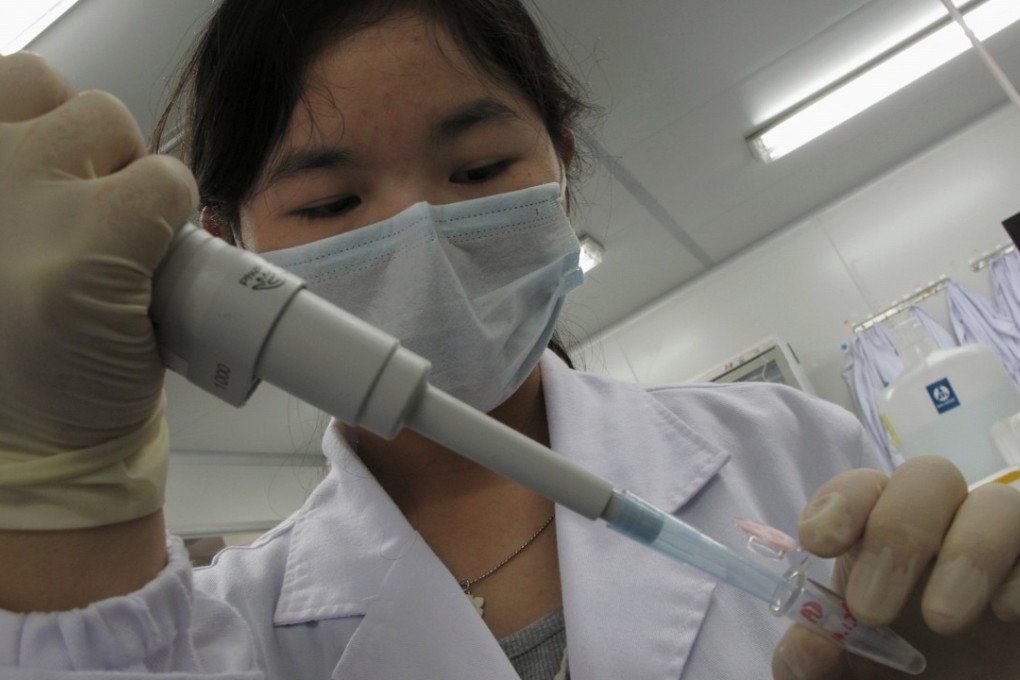Chinese biotech firm BGI Genomics surges 8-fold since IPO, pushing founder’s networth above US$2 bln
China’s genetics testing market size is expected to more than triple to 42 billion yuan by 2021, according to a consultancy report

Chinese biotech start-up BGI Genomics has soared 8 fold since its trading debut, pushing its founder’s net worth to 13.8 billion yuan, or US$2.1 billion.
The stock’s price-to-earnings ratio, however, has reached 109 times, scaring some market observers.
BGI Genomics, China’s largest genomics company, traded as high as 113.74 yuan Thursday on the start-up board on the Shenzhen Stock Exchange, before pulling back to close at 106.4 yuan, still reflecting an eightfold increase from its initial public offering price of 13.64 yuan on July 14.
Before Thursday, the stock had soared by the maximum daily increase of 10 per cent for 19 straight sessions since its trading debut. The number has far exceeded the average level in the market this year, as new listings on average post a stretch of 9-day increases of 10 per cent since IPO.
The company issued a statement on Wednesday night, saying it was aware of the “unusual fluctuations" in its stock prices. However, it has no major change in its business operations or material information to be disclosed.
The biggest winner from BGI’s stock gains seemed to be Wang Jian, the 63-year-old founder and chairman of the company, who holds a 32.5 stake, or 130 million shares.